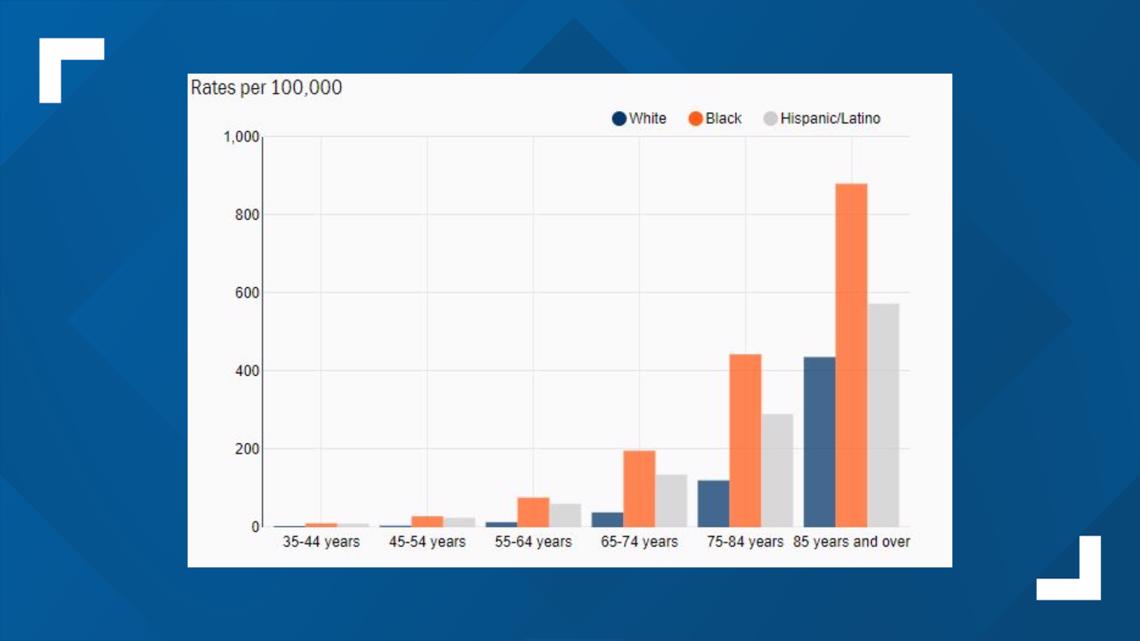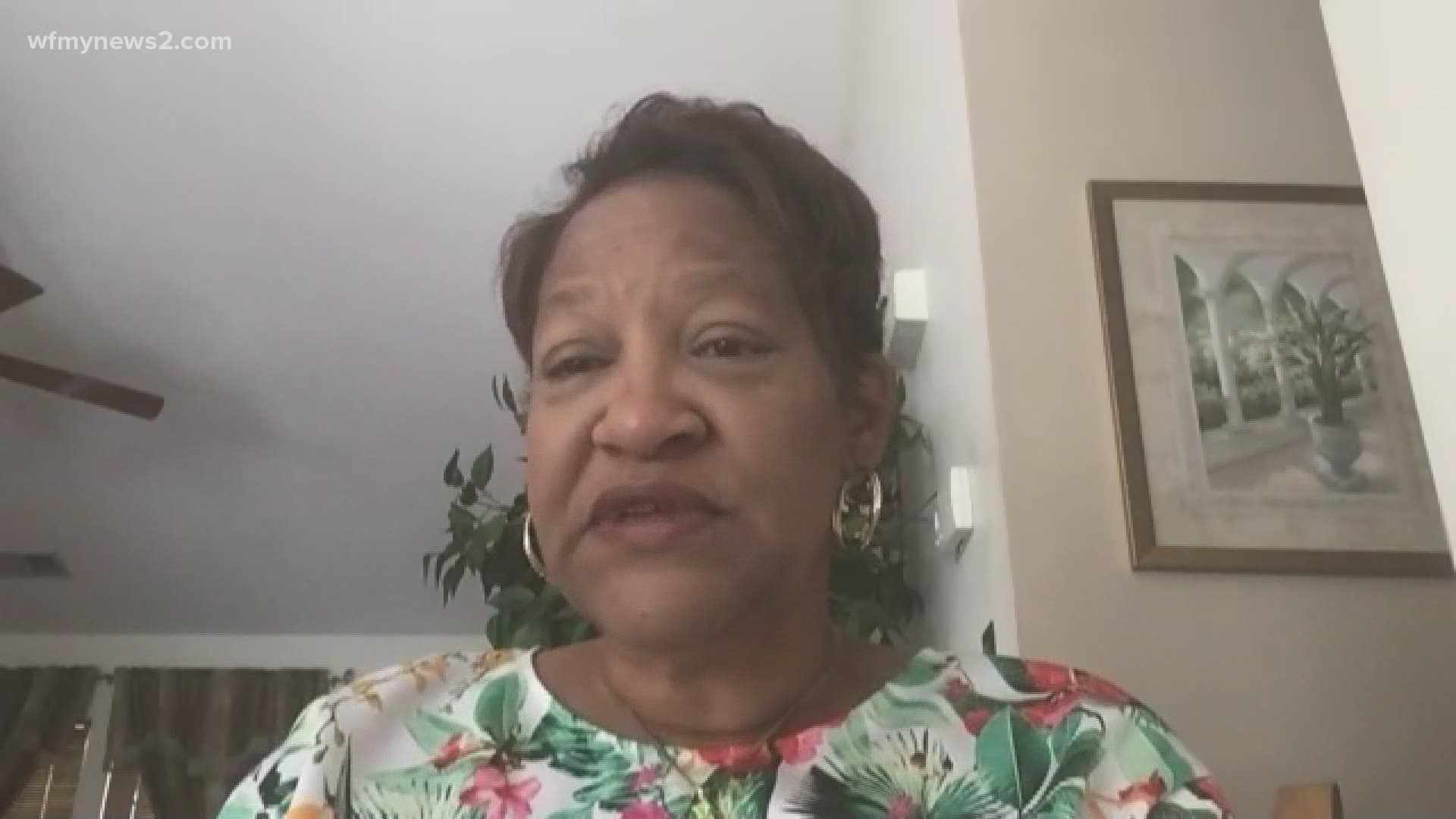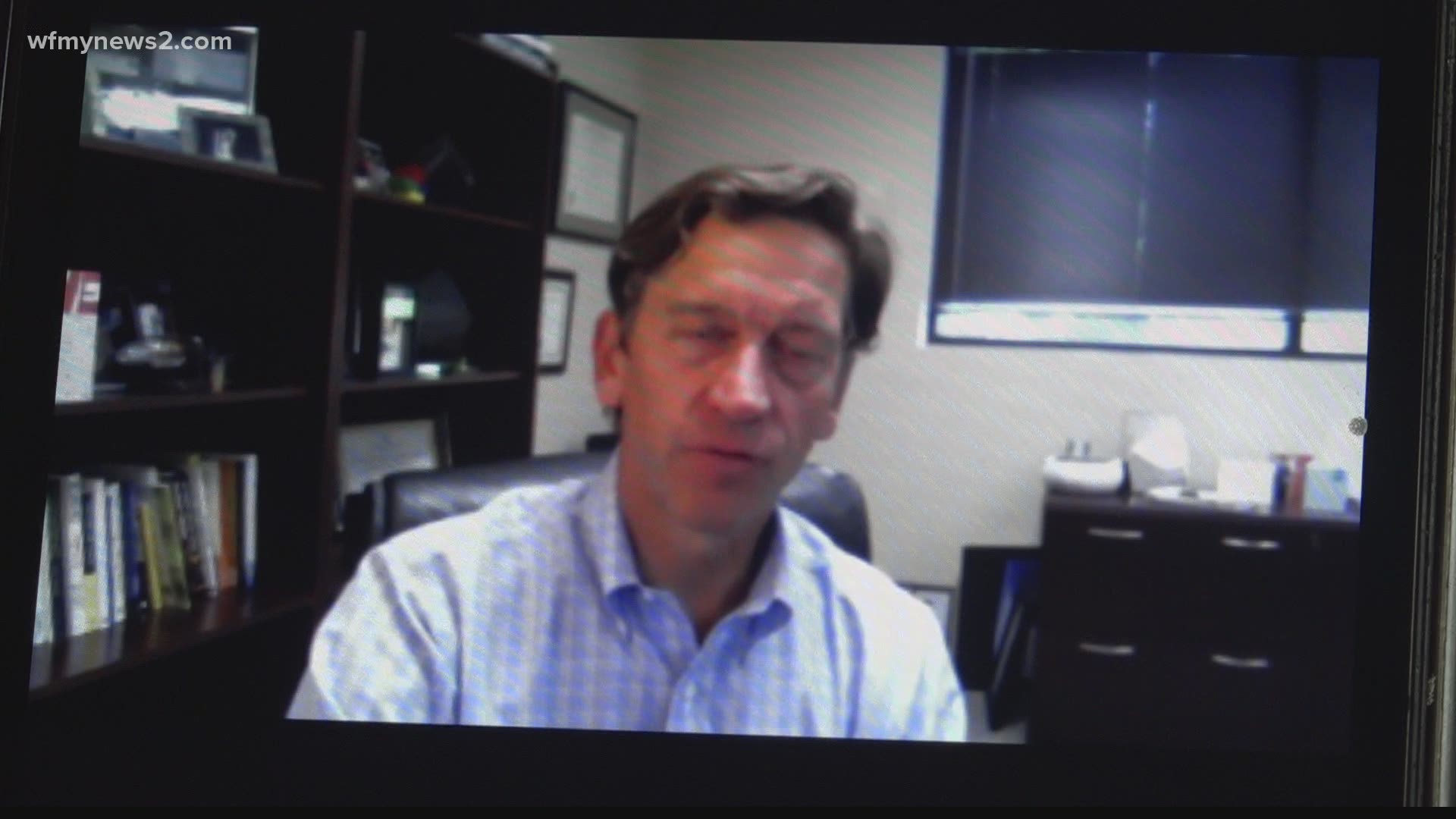GREENSBORO, N.C. — The data since the beginning of the coronavirus pandemic in the United States has pointed to older Americans being most at risk for severe cases of COVID-19. While that remains true, new federal data also points to race and ethnicity as being key factors in determining who is most at risk.
As coronavirus cases spike in much of the country, the new data from the Centers for Disease Control and Prevention shows the rates of infection, hospitalizations and deaths are far worse for Black Americans than any other ethnic group.
One chart released from the CDC shows the death rates among Black and Latino Americans are the highest of the three largest ethnic groups the CDC tracks and in all age categories.


Greensboro City Councilwoman Sharon Hightower called the statistics an alarming wakeup call as COVID-19 cases climb in North Carolina.
"The numbers are starting to go back up. I had hoped we had flattened the curve, but now, that doesn't seem to be the case," Hightower said. "Our health, our underlying medical conditions, our lack of access to fresh foods which leads to diabetes and high blood pressure, we suffer from those as well. It has contributed greatly to how the virus is impacting our lives."
The latest nationwide numbers as of Wednesday included 2,330,367 infections with 647,548 presumed recoveries and 114,809 deaths.
One of the reasons to explain the gaps in COVID-19 deaths is the higher rates of chronic medical conditions in the Black community. Hypertension, obesity, and diabetes are the top three medical conditions being linked to pooer outcomes of COVID-19.
Hightower is part of an effort to get the word out about the gaps in COVID-19 deaths, the free testing available as well as how to stop the spread. She points to the city's new mandatory mask requirement.
"It's critically important that we wear our face coverings, wash our hands and we stay socially distant," Hightower said. "But a lot of that has not been happening in recent events, particularly in social distancing, so the face coverings are really critically important."
The District One Councilwoman says East Greensboro is seeing an uptick in COVID-19 cases.
"East Greensboro is where the majority of the African Americans live that are seeing some of the highest numbers of cases," Hightower said.
The city will continue to hand out masks to people who need them and starting this week, they're bringing coronavirus testing into East Greensboro and other communities seeing the highest number of infections, hospitalizations, and deaths.
"I personally made sure testing was happening in East Greensboro. Initially, it was not and that became a concern for me, especially because the people affected the greatest live in East Greensboro," Hightower said. "There's testing going on at New Zion, Mount Zion and June 29 through July 1, testing at NC A&T, so right in the heart of East Greensboro testing is now going on."
COVID-19 testing is widely available and free if conducted through the Guilford County Health Department. The swab test takes about 10 seconds and you'll get the results back in 72 hours.
The next free testing opportunities in Guilford County are Wednesday and Friday at the Peeler Recreation Center in Greensboro. Testing is from 10 a.m. to 2 p.m. both days and it's open to any Guilford County resident. Walk-ins are welcome, but having an appointment makes the process faster. You can schedule one by calling 336-641-7527.
You can also find a testing facility near you on the North Carolina Department of Human and Health Services website or by calling the state's coronavirus response at 211.


